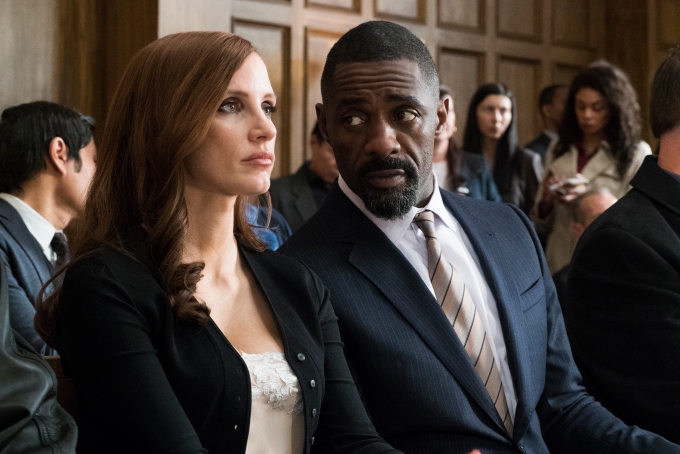
Make no mistake about it: Molly’s Game ascribes to a highly recognisable formula. It operates as a spiritual sequel to Miss Sloane, with the real-life footage application of The Big Short, dialogue technique mirroring that of The Social Network, with Spotlight-esque verbal displays of high-octane moral grandstanding. And I only partially mean this as a criticism.
There’s been an increasing renewed trend in the past few years of the “smart movie” genre, a film that allows an audience to feel intelligent for understanding the plot, largely through having characters explain the plot to one another, employing sarcasm as a veil for the genuinely didactic intention of a significant portion of the dialogue. Perhaps I’m going soft in my old age, but the cynicism with which I would have once met this phenomenon just isn’t there – this may at least partially be thanks to the power of Jessica Chastain’s performance, which alternates the machine gun extrapolation and ambiguously sardonic laconism for which we know her oh so well, but it remains, as ever, oh so good. Idris Elba’s principled former prosecutor defence attorney is as charming as only Idris Elba can be, even though we can see the lead-uo to his Mark Ruffalo-esque for-your-consideration table-thumbing speech from his introductory scene.
What becomes most intriguing to me, as I try and reflect on whether this is a weakness of the film, or its greatest strength, is the extent to which Molly Bloom’s connections are stressed in passing, but the film itself only ever seeks to investigate her and her non-disclosure of them. By actually seeing so little outside of Molly herself, the stakes of her predicament are somewhat too anchored in affect than effect, which cannot help but induce a certain weightlessness to the overall proceedings, however gripping individual scenes most assuredly are. Thus, there is very little sense of time passing, over the twelve year period of the main narrative, and thus any character building – or, indeed, unraveling – is effectively represented on a scene-to-scene basis. I do believe that, if the film’s exploration of Molly’s struggle with addiction had been more thorough, the uncertainty of time could have been a great asset to it’s phenomenological representation. However, this film was always going to operate in accordance with its stars’ performances and, on that level alone, it’s a powerhouse, no matter its predictability.
Accordingly, Molly’s Game seems to confirm what any reader has probably already surmised: a three-and-a-half star rating is for an at-most three star film this critic enjoyed to an at-least four star degree.
⭐⭐⭐1/2
